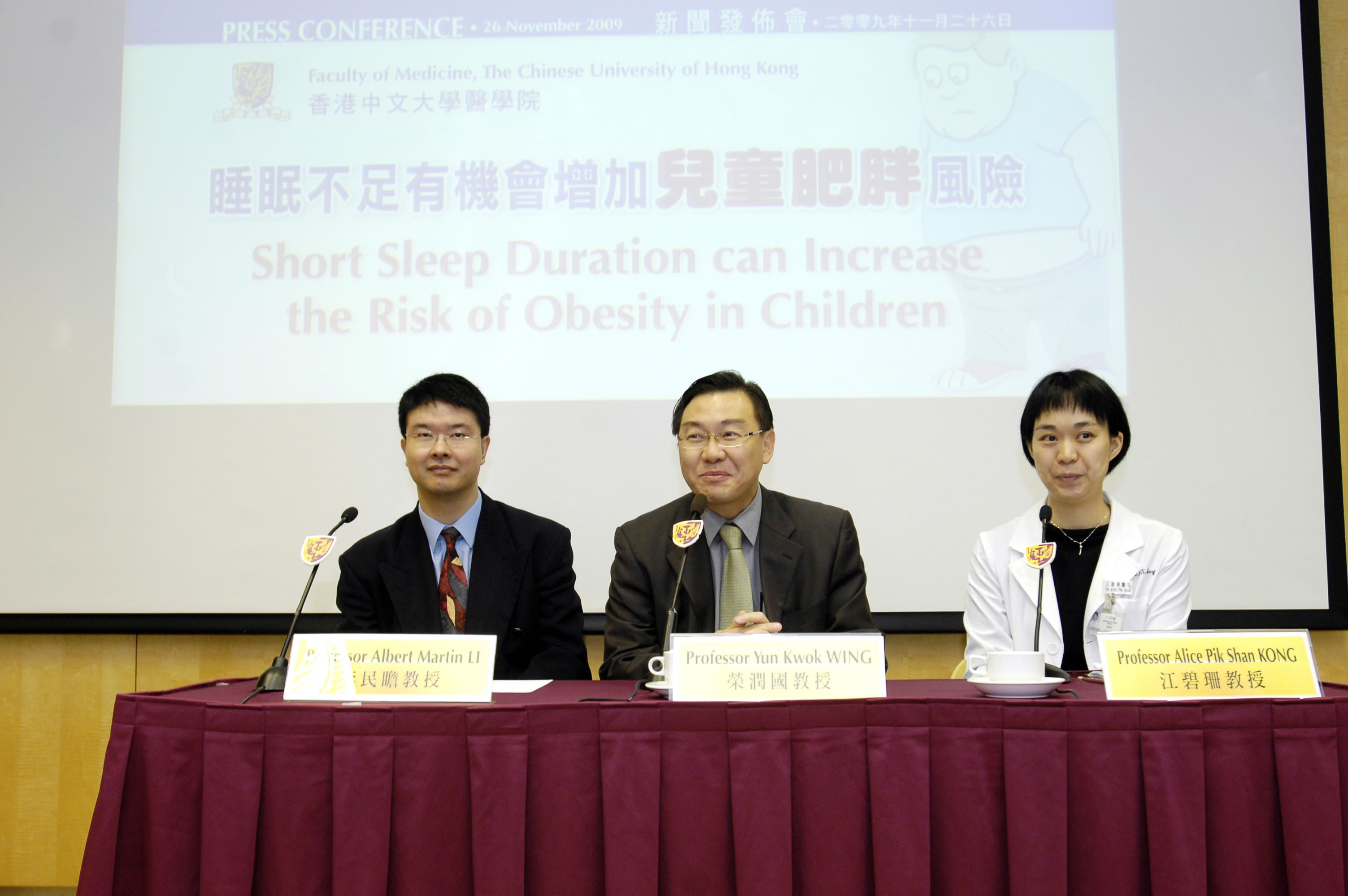CUHK
News Centre
CUHK Discovers Short Sleep Duration can Increase the Risk of Obesity in Children
With the emergence of ‘24-hour society’ and the increasing complexity of modern life, reduced sleep duration and sleep compensation during weekends and holidays have become a hallmark of contemporary society, particularly in Hong Kong. More and more research findings suggest that short sleep duration may be implicated in various health problems including obesity risk, and cardiovascular and diabetes complications. However, it remains an uncertainty on how sleep variability over weekends and long holidays among children would impact on the development of obesity.
In 2003, Professor Wing Yun-kwok of the Department of Psychiatry, Professor Albert Li of the Department of Pediatrics and Associate Professor Alice Kong of the Department of Medicine and Therapeutics at The Chinese University of Hong Kong (CUHK) jointly conducted a study to examine the effect of sleep duration on body weight in school-aged children. A survey on children’s sleep patterns, lifestyles, medical conditions, body weight and height was completed by parents of 5,159 children from 13 primary schools in New Territories East of Hong Kong.
The study found that primary school children in Hong Kong have only nine hours of sleep normally, and they tend to compensate for their accrued sleep debt of weekdays by sleeping one hour longer on holidays and weekends. However, overweight and obese children wake up earlier and have shorter sleep duration than their normal-weight peers. They also spend about 20 minutes more on daily sedentary activities (e.g. homework, reading and watching television). More importantly, children with persistently short sleep duration throughout weekdays, weekends and holidays are about two times more likely to be overweight and obese than their peers with sleep compensation during weekends or holidays. The result of this study was published in an international medical journal, Paediatrics, earlier this month.
Previous laboratory evidences suggested that sleep deprivation could be linked to a series of metabolic and appetite-regulating hormonal changes. This CUHK study established the association between short sleep duration and obesity among school-aged children from an epidemiological perspective. Although sleep compensation during weekends and long holidays might partly ameliorate the deleterious effect of weekday sleep debt on childhood overweight and obesity, CUHK Faculty of Medicine sees that regular and sufficient sleep is of paramount importance for the health of children. Parents should always try to make a sustained and dedicated effort to maintain a balance between their children’s academic success and physical well-being by ensuring adequate sleep in their children. They should also cultivate good sleeping habits in the early days of their children.
(From left) Prof. Albert Martin Li, Professor, Department of Paediatrics, Faculty of Medicine, CUHK; Prof. Wing Yun-kwok, Professor, Department of Psychiatry, Faculty of Medicine, CUHK; Prof. Alice Kong Pik-shan, Associate Professor, Department of Medicine and Therapeutics, Faculty of Medicine, CUHK







